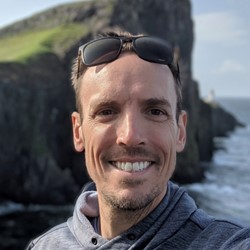Research and Professional Interests
Climate change, pollution, and over-exploitation of resources are rapidly altering the natural world. My research merges principles from physiological and community ecology to understand how environmental change impacts the structure and resilience of coastal ecosystems. I use hypothesis-driven field and lab-based experiments, behavioral studies, and meta-analytical syntheses to explore how changing conditions impact species’ physiology and in turn, the cascading consequences for the ecosystems in which they live. Two of the major questions I am interested in addressing are: (i) How do anthropogenic forces alter important species interactions, such as herbivory, predation, competition, and facilitation? and (ii) What effects do these changing biotic interactions have on ecosystem function and resilience? For example, recently we have been studying how warming and nutrient pollution interact to change the thermal tolerance and bleaching susceptibility of reef building corals. Similarly, in the Caribbean we are studying how selective fishing for large parrotfish, some of the most important herbivores on tropical reefs, alters grazing processes to influence reef resilience. Ultimately, my research seeks to advance our understanding of the feedbacks between organisms and their environment across multiple scales of biological complexity to enhance our ability to predict and manage the effects of global change.
In addition to understanding the consequences of global change, I am interested in incorporating ecological principles into conservation and restoration strategies. Coastal ecosystems around the world are experiencing dramatic declines and many regions are in need of proactive measures to maintain or restore the ecosystem goods and services they provide. Compared to many areas of restoration ecology, coastal restoration remains in its infancy and research is badly needed to maximize the efficacy of restoration efforts. To this end, I am a core member of the Coral Restoration Consortium’s “restoration genetics” working group, which helps to provide scientific guidelines to unify coral restoration strategies. Closer to home, I work with the Apalachicola Bay System Initiative to understand how the changing abiotic conditions in Apalachicola Bay impact oysters and their predators. A primary goal of this research is to identify the environmental parameters that are critical to the rehabilitation of the bay, as well as species interactions that can be harnessed to facilitate the recovery of Apalachicola Bay oyster populations.
Education
Ph.D. Florida International University (2016)
M.Sc. Northeastern University (2010)
B.A. University of Colorado (2005)
Research Areas & Interests
Physiological & Community Ecology, Conservation, Restoration

